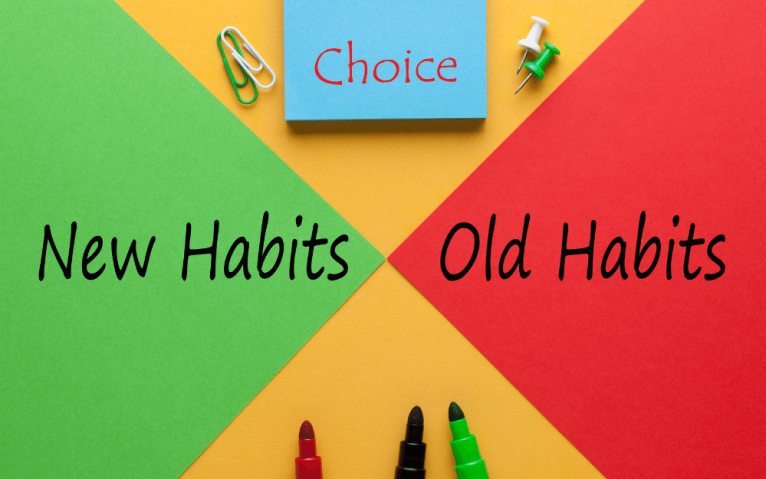The fine line between a habit and an addiction can often be challenging to see. Many habit-forming and addiction behaviors overlap in unexpected ways that sometimes people don’t see. Understanding the differences between habit and addiction is key to understanding how we make our decisions and steer away from losing control.
What’s a Habit?
A habit is essentially something that’s part of a routine or regular behavior that gets more challenging to give up the longer we have that behavior. For example, morning rituals are often made of different habits, like brushing your teeth, taking a shower, and drinking coffee. Over time, these behaviors can become highly consistent for people.
Some people develop what we know as healthy habits or “rational addictions.” In this case, someone weighs the benefits and consequences of their habits to choose whether or not they want to keep engaging with them in the future. Ideally, people will gravitate toward healthier habits and be strong-minded enough to recognize the unhealthy ones.
The American Journal of Psychology defines habits as a more or less fixed way of thinking. From psychology, a habit is a less fixed feeling acquired through previous repetition of a mental experience. Habitual behavior often goes unnoticed because a person doesn’t engage in the regular self-analysis we go through to decide. So, one could say habits are what our mind does in auto-pilot.
However, habits can also be compulsory, meaning we don’t control them. One study says that approximately 43% of our daily behaviors are out of habit. Thus, our actions become automatic. The problem is that unhealthy habits are hard to break, and new habits are difficult to form because the behavioral patterns in our neural pathways are already set. Of course, through repetition, we could potentially learn new habits and break old ones.
What’s an Addiction?
On the other hand, addictions are much more potent than habits. People believe that addiction is merely a bad habit, but the reality is much more complicated than that. The American Psychiatric Association defines addiction as an intense focus on using a specific addictive substance, such as alcohol or drugs, to the point that it takes over someone’s life. As a result, people with addictions have a different way of thinking and altered brain functions that prohibit them from breaking the habit.
When talking about substance addiction, there’s another element that plays a significant role. For example, many substances create surges of dopamine in the reward system that trick the brain into believing that unhealthy behaviors like taking drugs are indeed pleasurable. Over time, the natural mechanisms that trigger dopamine in the brain lessen. Thus, people are left to seek more out of the substance to experience that same level of pleasure they once did. When the brain’s reward system changes, it can be quite challenging to break an addiction.
Of course, not all addictions are related to substances. Certain behaviors can be just as addictive. Someone with a behavioral addiction will engage in compulsive behaviors despite the negative physical, mental, and social consequences of their actions. Things like gambling, eating disorders, shopping addiction, and sex addiction are all behavioral compulsions that negatively impact.
Differences Between Habit and Addiction
On the surface, habits and addictions are very similar. Both follow a similar process of forming. To develop a habit, you first need to engage in a behavior or routine (good or bad), then you reap the reward or that feeling the brain likes and helps it remember it. Finally, over time your brain recognizes that cue or trigger to go in auto-pilot. That’s how you form a habit.
However, over time (on average 66 days), a simple habit like having a glass of wine after work can rewire the brain to believe that these harmful substances or behaviors are actually beneficial. Of course, this happens quicker with drugs and alcohol since they directly alter the brain’s reward pathways. But, the same can happen with behavioral addictions since they do produce a similar surge of dopamine.
To differentiate between a habit and an addiction, consider asking yourself these questions:
- Is your behavior harming your life?
- Do you keep putting yourself in risky situations to sustain such a habit?
- When you stop this behavior or substance, do you experience anxiety, stress, or other withdrawal symptoms?
- Have you taken steps to hide your behavior, or have you tried to stop this behavior but been unsuccessful?
If you answered “yes” to any of these questions, your habits might be turning into an addiction.
Getting Help for an Addiction
We know how overwhelming and difficult it can be to notice the differences between habit and addiction. However, if you or someone you know might be struggling with addiction, it’s best to seek help. At Lighthouse Recovery Institute, our therapists can help you learn how to address these habit-forming behaviors and start working towards your recovery goals. Don’t let your habits turn into addictions. If you feel as if your habits are taking control of your life, contact us today and learn more about your addiction recovery options.









